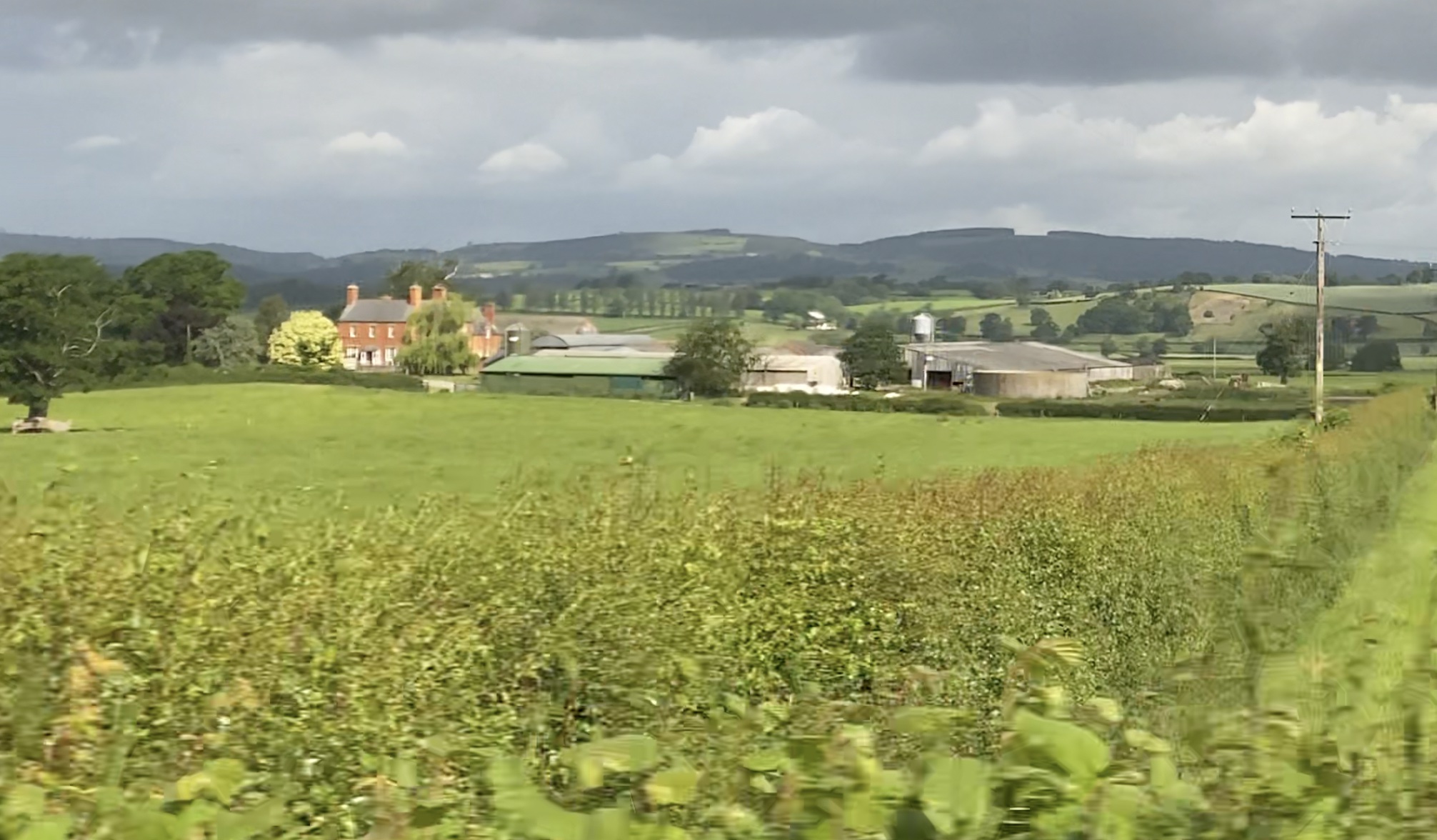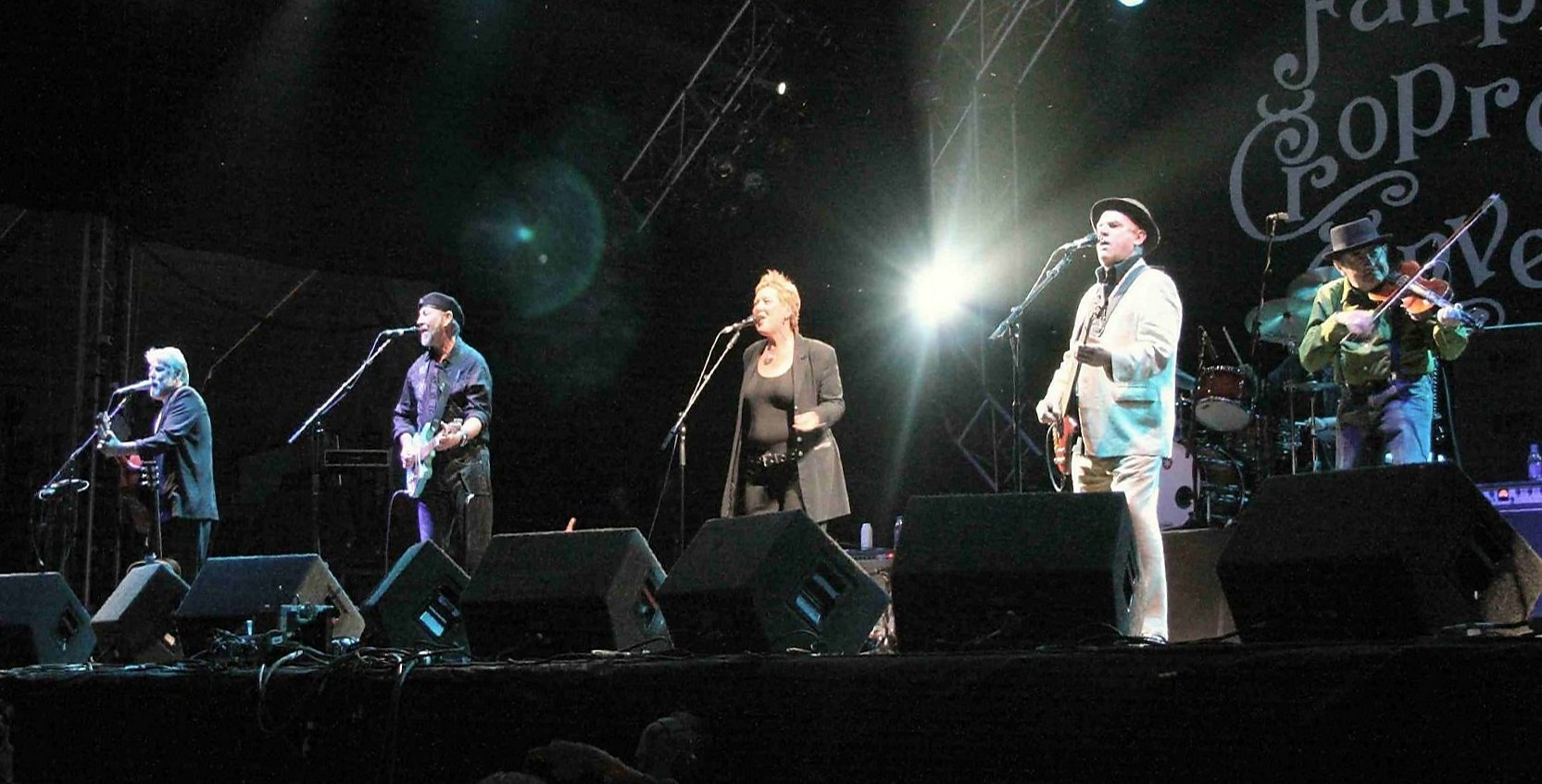|
Awkward Annie
''Awkward Annie'' is the seventh studio album by English people, English contemporary folk musician Kate Rusby, released on 3 September 2007 on Pure Records. The album is the first to be produced by Rusby herself, following her split with husband and producer John McCusker.Denselow, Robin"Kate Rusby, Awkward Annie"The Guardian, ''Guardian.co.uk'', 14 September 2007 (Retrieved: 20 July 2009) Regarding her role as producer Rusby states that: Song information Rusby states that the track "Bitter Boy" is her favourite composition that she herself has written. "John Barbury" is set to a traditional melody, Child Ballads, Child Ballad 89 ("Fause Foodrage"), while its lyrics originate from Child Ballads, Child Ballad 100 ("Willie O Winsbury"). This tune became well known in the late 1960s after Richard Thompson (musician), Richard Thompson used it as the basis for the Fairport Convention song "Liege and Lief#Track listing, Farewell, Farewell". The bonus track, a cover version, cover of ... [...More Info...] [...Related Items...] OR: [Wikipedia] [Google] [Baidu] |
Kate Rusby
Kate Anna Rusby (born 4 December 1973) is an English English folk music, folk singer-songwriter from Penistone, West Riding of Yorkshire, England. Sometimes called the "Barnsley Nightingale", she has headlined various British folk festivals, and is one of the best known contemporary English folk singers. In 2001 ''The Guardian'' described her as "a superstar of the British acoustic scene."Denselow, Robin"Kate Rusby – Queen Elizabeth Hall, London"The Guardian, ''Guardian.co.uk'', 28 June 2001 (Retrieved: 19 July 2009) In 2007 the BBC website described her as "The first lady of young folkies". She is one of the few folk singers to have been nominated for the Mercury Prize.Wilson, Sue"Lost love and other heartbreaks"The Independent, ''Independent.co.uk'', 18 June 2001 (Retrieved: 19 July 2009)"No sure bets for Mercury" ... [...More Info...] [...Related Items...] OR: [Wikipedia] [Google] [Baidu] |
Willie O Winsbury
Willie O Winsbury is Child Ballad 100 (Roud 64). The song, of which there are many variants, is a traditional Scottish ballad that dates from at least 1775, and is known under several other names, including "Johnnie Barbour" and "Lord Thomas of Winesberry". Synopsis A king is away for some time. His daughter becomes pregnant by the hero, William or Thomas. The king threatens to hang him, but is struck by his beauty and offers him his daughter's hand, gold, and land. The hero agrees to marry the king's daughter but declares the gold and the land to be hers, not his own. Historical Basis This ballad closely parallels Child ballad 99, "Johnie Scot". In one variant, the lands are specifically described: he will be king when he returns to Scotland. It may, in fact, be based on James V's courtship of and marriage to Madeleine de Valois of France; James came to see the woman he was betrothed to in disguise, and went on to meet the princess, who fell in love with him.Francis James C ... [...More Info...] [...Related Items...] OR: [Wikipedia] [Google] [Baidu] |
Ray Davies
Sir Raymond Douglas Davies ( ; born 21 June 1944) is an English musician. He was the lead vocalist, rhythm guitarist, and main songwriter for the rock band the Kinks, which he led with his younger brother Dave on lead guitar and backing vocals. He has also acted in, directed, and produced shows for theatre and television. Known for focusing his lyrics on English culture, nostalgia, and social satire, he is often referred to as the "Godfather of Britpop", though he disputes this title. He was inducted into the Rock and Roll Hall of Fame as a member of the Kinks in 1990. After the dissolution of the Kinks in 1996, he embarked on a solo career. Early years Raymond Douglas Davies was born at 6 Denmark Terrace in the Fortis Green area of London on 21 June 1944. He is the seventh of eight children born to working-class parents, including six elder sisters and younger brother Dave Davies. His father, Frederick George Davies (1902–1975), was a slaughterhouse worker.London, Englan ... [...More Info...] [...Related Items...] OR: [Wikipedia] [Google] [Baidu] |
Wild Mountain Thyme
"Wild Mountain Thyme" (also known as "Purple Heather" and "Will Ye Go, Lassie, Go?") is a Scottish/Irish folk song. The lyrics and melody are a variant of the song "The Braes of Balquhither" by Scottish poet Robert Tannahill (1774–1810) and Scottish composer Robert Archibald Smith (1780–1829), but were adapted by Belfast musician Francis McPeake (1885–1971) into "Wild Mountain Thyme" and first recorded by his family in the 1950s. Tannahill's original song, first published in Robert Archibald Smith's ''Scottish Minstrel'' (1821–24), is about the hills (''braes'') around Balquhidder near Lochearnhead Lochearnhead (Scottish Gaelic: Ceann Loch Èireann) is a village in Perthshire on the A84 Stirling to Crianlarich road at the foot of Glen Ogle, north of the Highland Boundary Fault. It is situated at the western end of Loch Earn where the A8 .... Tannahill collected and adapted traditional songs, and "The Braes of Balquhither" may have been based on the traditional so ... [...More Info...] [...Related Items...] OR: [Wikipedia] [Google] [Baidu] |
Andrew Lammie
"Andrew Lammie" is Child ballad 233 (Roud Folk Song Index, Roud 98). It is said to record a historical event, with the grave of the heroine in thchurchyardat Fyvie. Synopsis Tifty’s Annie falls in love with Andrew Lammie, a lord's trumpeter. Her parents refuse permission because he is poor. He has to leave, and although he has promised fidelity and to return, she sickens. Her family, set against the match, try beatings to make her give him up, but it is unavailing. They may send to the lord accusing Andrew Lammie of bewitching her, but the lord believes his claim that it was only love. She dies, either of a broken heart or her back broken by her brother. Her father may repent of his insistence. Usually, Andrew Lammie dies soon after. Recordings This ballad also forms the unifying device of a ballad opera, ''Mill O' Tifty's Annie'', by the Scottish composeEric James Reid(1935–1970). There were several performances in the 1960s. Subsequently, devised by Geoffrey At ... [...More Info...] [...Related Items...] OR: [Wikipedia] [Google] [Baidu] |
Jam And Jerusalem
Jam is a type of fruit preserve. Jam or Jammed may also refer to: Other common meanings * A firearm malfunction * Block signals ** Radio jamming ** Radar jamming and deception ** Mobile phone jammer ** Echolocation jamming Arts and entertainment Music * The Jam, an English band, late 1970s-early 1980s * The Jam (production team) * JAM Project, a Japanese animation music group * Judy and Mary, a Japanese band * Jam (album), ''Jam'' (album), by Little Angels * Jam (Michael Jackson song), "Jam" (Michael Jackson song) * Jam (The Yellow Monkey song), "Jam" (The Yellow Monkey song) * "Jam (Turn It Up)", a song by Kim Kardashian * Jam, improvise music in a jam session * Jammed (album), ''Jammed'' (album), a 2004 studio album by The Church Other * Jam (film), ''Jam'' (film), a 2006 film by Craig E. Serling * Jam (novel), ''Jam'' (novel), a 2010 novel by Ben "Yahtzee" Croshaw * Jam (TV series), ''Jam'' (TV series), UK * Jam Kuradoberi, a character in the ''Guilty Gear'' game ser ... [...More Info...] [...Related Items...] OR: [Wikipedia] [Google] [Baidu] |
BBC Television
BBC Television is a service of the BBC. The corporation has operated a public broadcast television service in the United Kingdom, under the terms of a royal charter, since 1927. It produced television programmes from its own studios from 1932, although the start of its regular service of television broadcasts is dated to 2 November 1936. The BBC's domestic television channels have no commercial advertising and collectively they accounted for more than 30% of all UK viewing in 2013. The services are funded by a television licence. As a result of the 2016 Licence Fee settlement, the BBC Television division was split, with in-house television production being separated into a new division called BBC Studios and the remaining parts of television (channels and genre commissioning, BBC Sport and BBC iPlayer) being renamed as BBC Content. History of BBC Television The BBC operates several television networks, television stations (although there is generally very little distincti ... [...More Info...] [...Related Items...] OR: [Wikipedia] [Google] [Baidu] |
The Village Green Preservation Society
"The Village Green Preservation Society" is a song by the English rock band the Kinks from their 1968 album '' The Kinks Are the Village Green Preservation Society''. Written and sung by the band's principal songwriter Ray Davies, the song is a nostalgic reflection where the band state their intention to "preserve" British things for posterity. As the opening track, it introduces many of the LP's themes; Ray subsequently described it as the album's "national anthem". Ray was inspired to write "The Village Green Preservation Society" after hearing someone express that the Kinks had been preserving "nice things from the past". Written and recorded in August 1968 as sessions for the band's next album neared completion, the song was intended to be a new title track after he remained unsatisfied with the album's working title ''Village Green''. The song pairs pop and rock music with elements of English music hall, indicating Ray's continued interest in the genre. It has received g ... [...More Info...] [...Related Items...] OR: [Wikipedia] [Google] [Baidu] |
The Kinks
The Kinks were an English rock band formed in Muswell Hill, north London, in 1963 by brothers Ray and Dave Davies. They are regarded as one of the most influential rock bands of the 1960s. The band emerged during the height of British rhythm and blues and Merseybeat, and were briefly part of the British Invasion of the United States until their touring ban in 1965. Their third single, the Ray Davies-penned "You Really Got Me", became an international hit, topping the charts in the United Kingdom and reaching the Top 10 in the United States. The Kinks' music drew from a wide range of influences, including American R&B and rock and roll initially, and later adopting British music hall, folk, and country. The band gained a reputation for reflecting English culture and lifestyle, fuelled by Ray Davies' wittily observational writing style, and made apparent in albums such as '' Face to Face'' (1966), '' Something Else'' (1967), ''The Village Green Preservation Society'' (1968), ... [...More Info...] [...Related Items...] OR: [Wikipedia] [Google] [Baidu] |
Cover Version
In popular music, a cover version, cover song, remake, revival, or simply cover, is a new performance or recording by a musician other than the original performer or composer of the song. Originally, it referred to a version of a song released around the same time as the original in order to compete with it. Now, it refers to any subsequent version performed after the original. History The term "cover" goes back decades when cover version originally described a rival version of a tune recorded to compete with the recently released (original) version. Examples of records covered include Paul Williams' 1949 hit tune "The Hucklebuck" and Hank Williams' 1952 song "Jambalaya". Both crossed over to the popular hit parade and had numerous hit versions. Before the mid-20th century, the notion of an original version of a popular tune would have seemed slightly odd – the production of musical entertainment was seen as a live event, even if it was reproduced at home via a cop ... [...More Info...] [...Related Items...] OR: [Wikipedia] [Google] [Baidu] |
Liege And Lief
''Liege & Lief'' is the fourth album by the British folk rock band Fairport Convention. It is the third album the group released in the UK during 1969, all of which prominently feature Sandy Denny as lead female vocalist (Denny did not appear on the group's 1968 debut album), as well as the first to feature future long-serving personnel Dave Swarbrick and Dave Mattacks on violin/mandolin and drums, respectively, as full band members (Swarbrick had previously guested on ''Unhalfbricking''). It is also the first Fairport album on which all songs are either adapted (freely) from traditional British and Celtic folk material (for example "Matty Groves", "Tam Lin"), or else are original compositions (such as "Come All Ye", "Crazy Man Michael") written and performed in a similar style. Although Denny and founding bass player Ashley Hutchings quit the band before the album's release, Fairport Convention has continued to the present day to make music strongly based within the British folk ... [...More Info...] [...Related Items...] OR: [Wikipedia] [Google] [Baidu] |
Fairport Convention
Fairport Convention are an English folk rock band, formed in 1967 by guitarists Richard Thompson and Simon Nicol, bassist Ashley Hutchings and drummer Shaun Frater (with Frater replaced by Martin Lamble after their first gig.) They started out heavily influenced by American folk rock, with a setlist dominated by Bob Dylan and Joni Mitchell songs and a sound that earned them the nickname "the British Jefferson Airplane". Vocalists Judy Dyble and Iain Matthews joined them before the recording of their self-titled debut in 1968; afterwards, Dyble was replaced by Sandy Denny, with Matthews later leaving during the recording of their third album. Denny began steering the group towards traditional British music for their next two albums, ''What We Did on Our Holidays'' and ''Unhalfbricking'' (both 1969); the latter featured fiddler Dave "Swarb" Swarbrick, most notably on the song "A Sailor's Life", which laid the groundwork for British folk rock by being the first time a trad ... [...More Info...] [...Related Items...] OR: [Wikipedia] [Google] [Baidu] |
.jpg)






